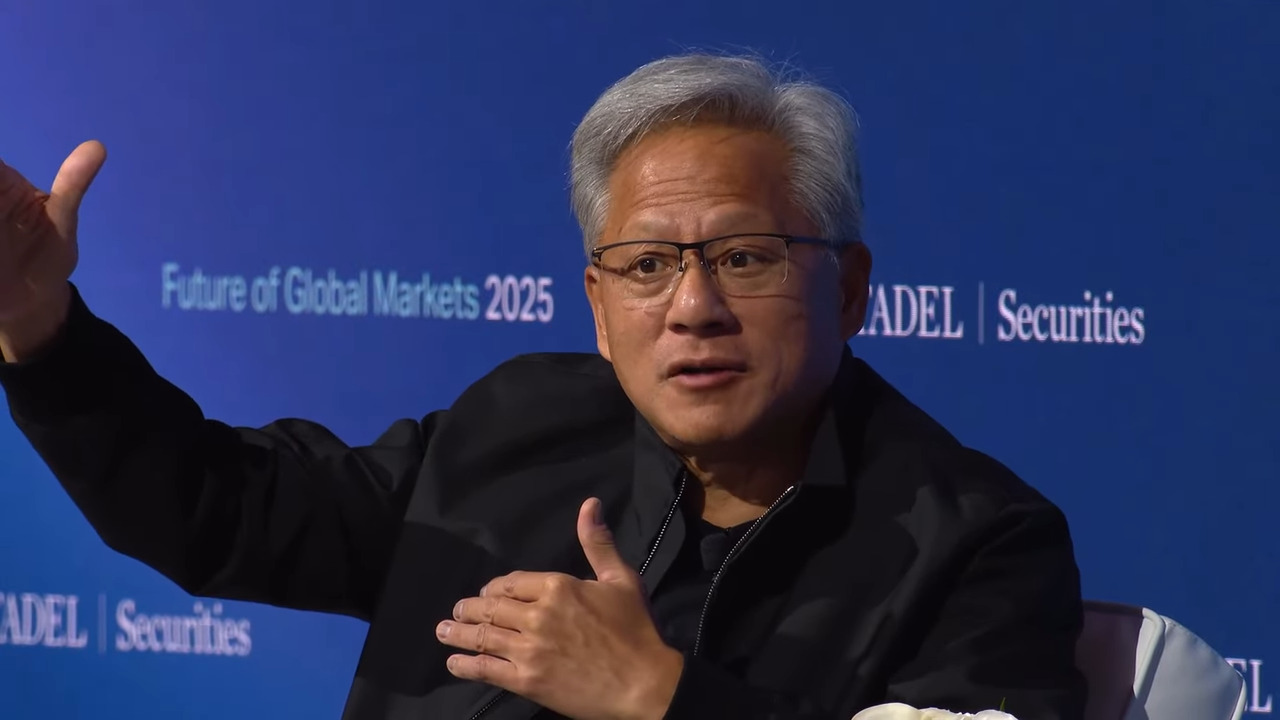
Nvidia CEO Jensen Huang spoke at the Citadel Securities Future of Global Markets 2025 conference last week, and would you believe it, most of the conversation centred around AI. However, the NV head honcho also had some comments to make on China’s role within AI development, and Nvidia’s efforts to sell its AI hardware within the country—along with some commentary on US trade policy between the two.
“It’s important to be mindful that what harms China could oftentimes also harm America, and even worse,” said Huang. (Translation: “It’s vital to understand that policies detrimental to China can also negatively impact the United States.”)
“China has about 50% of the world’s AI researchers, incredible schools, incredible focus in AI, lots of passion around AI. And I think it’s a mistake to not have those researchers build AI on American technology,” he continued.
“We are 100% out of China… we went from 95% market share to 0%, and so I can’t imagine any policy maker thinking that’s a good idea, that whatever policy we implemented caused America to lose one of the largest markets in the world.”
Certainly, Nvidia looks to have found itself at the centre of trade frictions between the two countries. While pre-existing US AI chip export bans to China appeared to be loosening earlier this year, in the form of Nvidia’s US government-approved licenses to sell its H20 AI GPUs in the country, progress has since appeared to stall, as the two countries engage in a protracted trade dispute.
Nvidia’s CFO recently described the stalled progress as “a little geopolitical situation between the two governments”, but little or not, it still appears that Nvidia remains in AI chip limbo in regards to the Chinese market.
For China’s part, production was also reportedly paused on H20 GPUs as a result of security concerns from the Chinese authorities halting their sale, and potential buyers were left waiting to purchase chips that have yet to make it past the restrictions. Huang has also previously expressed his disappointment at the news that China’s internet regulator had banned some of the country’s largest tech firms from buying the China-specific RTX Pro 6000D.
Last week, Trump announced a new 100% tariff on Chinese goods in relation to a rare earth metal dispute, alongside new export controls on “any and all critical software”, which suggests that trade friction between the two superpowers isn’t likely to calm any time soon. While AI hardware has slipped from the headlines in the recent disputes, it’s never far from the frame—and Nvidia’s AI chips still remain unobtainable by legitimate means on Chinese shores.
In short, the ongoing trade disputes between the US and China have been a real headache for Nvidia, and while Huang and the Trump administration appear to be on good terms, even the considerable weight of the most valuable company in the world doesn’t appear to have made much of a dent on current US or Chinese government policy.
It looks like Nvidia will just have to wait to see how things play out—because as relations between the two countries currently stand, the company’s Chinese market aspirations appear to be well outside of its control.
